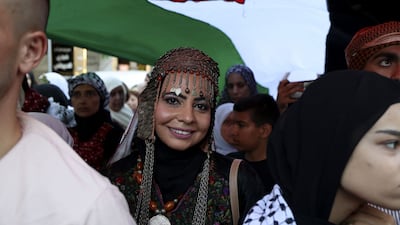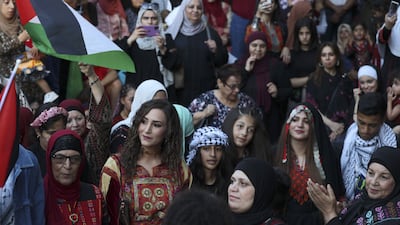Israel has amended a controversial new set of rules on daily life as well as movement into and out of the occupied West Bank after criticism of a new requirement of foreigners to register any romantic relationships with the military within 30 days of the beginning.
Cogat, the Israeli agency in charge of Palestinian civilian affairs, dropped some of the new rules laid out earlier this year in a 90-page document released late on Sunday night. However, an Israeli rights group taking legal action against the government over the proposals said the amendments were broadly cosmetic.
The wide-ranging policy imposes rules on foreigners who marry Palestinians or who come to the West Bank to work, volunteer, study or teach.
While Cogat dropped the requirement for foreigners to register all new relationships – defined as an engagement, wedding or moving in together – with Palestinians within 30 days of the start, it said that the army must be notified "as part of their request to renew or extend the existing visa".
The rules do not apply to people visiting Israel or the more than 130 Jewish settlements scattered across the West Bank.
Israel captured the West Bank, along with East Jerusalem and the Gaza Strip, in the 1967 Arab-Israeli war. They are territories Palestinians seek for an independent state.
The changes also dropped an earlier limit on the number of foreign students and teachers allowed to study or work in the West Bank. The amount of time they can stay in the territory was also lengthened.
Yet Cogat continues to hold great discretion over who is allowed in. It must approve the academic credentials of a university lecturer invited by a Palestinian institution and holds the right to screen students if there is “suspicion of misuse” of a visa.
Israeli and Palestinian rights groups said the revisions to the rules didn't go far enough.
“In response to criticism, they have removed the most outrageous elements. Yet they are keeping the basic structure of this very invasive and harmful procedure in place," said Jessica Montell, executive director of HaMoked, an Israeli human rights group that has challenged the rules in court.
“The Israeli military is proposing new restrictions in order to isolate Palestinian society from the outside world and keep Palestinian families from living together,” she added.
Traditional dress celebrated in West Bank - in pictures










Despite dropping the need to notify the military within 30-days, tough restrictions on foreign spouses of Palestinians still remain in place.
Spouses are only entitled to short-term visits and can be required to deposit up to 70,000 shekels (about $20,000) to guarantee they will leave the territory.
Israel reinforces section of West Bank wall - video
The new rules offer some potential relief for foreign spouses, including a longer-term visa of 27 months that can be renewed and include several visits in and out of the territory.
It also drops a previous “cooling off” period that required spouses to leave for lengthy periods between visas.
But these new and improved visas require an application through the Palestinian Authority to Israel — a process that is uncertain and notoriously opaque, Ms Montell said.
The document says a final decision is also subject to approval by Israel’s “political echelon".
The EU, which sends hundreds of students and professors on academic exchanges to the West Bank each year, did not immediately comment on the Israeli announcement.
Cogat officials declined to comment further, while the Palestinian Authority had no immediate reaction. Ms Montell said her group would continue its legal challenges.



